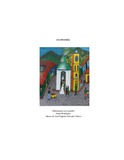| dc.rights.license | http://creativecommons.org/licenses/by-nc-sa/3.0/ve/ | |
| dc.contributor.author | Reinoza, Yolanda | |
| dc.contributor.author | Contreras, Ismaira | |
| dc.date.accessioned | 2010-02-09T09:30:42Z | |
| dc.date.available | 2010-02-09T09:30:42Z | |
| dc.date.issued | 2008-12-31 | |
| dc.identifier.issn | 13167790 | |
| dc.identifier.uri | http://www.saber.ula.ve/handle/123456789/30379 | |
| dc.description.abstract | El presente artículo, que se deriva de una investigación descriptiva,
estudia la medianería como fuente de financiamiento informal en la
producción de papa del Municipio Rangel del estado Mérida. Se analiza,
como caso de estudio, la Parroquia San Rafael de Mucuchíes durante el
período 2003 y 2004. Inicialmente se realizó en la zona indicada una
investigación documental y luego una investigación de campo. La muestra
se seleccionó utilizando el Muestreo Aleatorio Estratificado Simple. Se
consideraron cuatro estratos: 1) propietarios con riego, 2) socio medianero
con riego, 3) propietario sin riego y 4) socio medianero sin riego. Los
resultados obtenidos indican que ante la escasa o inadecuada ayuda
financiera por parte del Estado, o la imposibilidad de acceder a la banca
privada para obtener recursos, los productores de papa recurren a la
medianería para poder compartir los elevados costos del cultivo así como
para compartir los riesgos de la siembra. | es_VE |
| dc.language.iso | es | es_VE |
| dc.publisher | SABER ULA | es_VE |
| dc.rights | info:eu-repo/semantics/openAccess | |
| dc.subject | Agricultura | es_VE |
| dc.subject | Productores | es_VE |
| dc.subject | Financiamiento | es_VE |
| dc.subject | Medianería | es_VE |
| dc.title | La medianería como fuente de financiamiento informal en la producción de papa del Municipio Rangel del estado Mérida | es_VE |
| dc.title.alternative | Sharecropping as a source of informal financing for the potato production in Rangel Municipality from Mérida state | es_VE |
| dc.type | info:eu-repo/semantics/article | |
| dc.description.abstract1 | In this work some of the problems which teachers are facing regarding
the access and use of information and communication technologies ( ICT)
are described, among which we can stand out: the lack of economical
resources, both at the institutional and individual level, which in many
people’s view prevent from using the state-of-the-art technology; the
technological illiteracy, related to the ignorance regarding the manipulation
of both computers and a range of equipment and devices which allow to set
a new communication style, and, finally, the uncertainty regarding the
method to teach students as they show particular features being the first
generation of the digital age. The dramatic changes brought about by ICTs
bring to light that the information society will be based on the knowledge
access interchange and consumption. In the case described here, that of
teachers situation, the future context requires the need for establishing clear
guidelines for training which enable supply of information and knowledge
from the basic computer manipulation up to the use and application of ICTs
in the teaching and learning process. | es_VE |
| dc.description.colacion | 15-45 | es_VE |
| dc.description.email | reinoza@pdvsa.com | es_VE |
| dc.description.email | ismaira@ula.ve | es_VE |
| dc.description.frecuencia | Semestral | |
| dc.description.tiponivel | Nivel analítico | |
| dc.identifier.depositolegal | 199802ME291 | |
| dc.publisher.pais | Venezuela | es_VE |
| dc.subject.facultad | Núcleo Rafael Rangel (NURR) | es_VE |
| dc.subject.keywords | Information and communication technologies | es_VE |
| dc.subject.keywords | Teacher’s training | es_VE |
| dc.subject.keywords | Acquisition | es_VE |
| dc.subject.keywords | Inequality | es_VE |
| dc.subject.keywords | Technological illiteracy | es_VE |
| dc.subject.publicacionelectronica | Agora Trujillo | |
| dc.subject.seccion | Agora Trujillo: Economía | es_VE |
| dc.subject.tipo | Revistas | es_VE |
| dc.type.media | Texto | es_VE |



